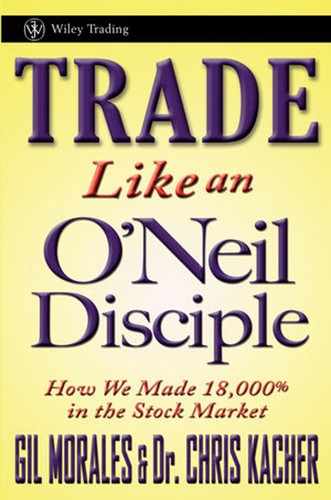Chapter 4. Failing Forward
There have been many times when I, like many other speculators, have not had the patience to await the sure thing. I wanted to have an interest at all times. You may say, "With all your experience, why did you allow yourself to do so?" The answer to that is that I am human and subject to human weakness.
—Jesse Livermore, How to Trade in Stocks
As long as the human element is involved in the investment process, then mistakes can be relied upon to litter the landscape of that process. Why do we screw up? Because we're human—a simple answer to a complex problem and perhaps the most difficult aspect of investing to contend with. Failure can result from a single mistake or even a series of mistakes, whether big or small, which often take on a snowballing effect that reaches a final, painful, and climactic conclusion. When failure sets in, and the full extent of the damage inflicted thereby can be assessed, it can be a rather mind-wrenching affair. In the end, however, it can serve as a highly constructive cleansing process. And only by understanding the genesis of our mistakes can we begin to correct them.
In this chapter we examine some of our biggest mistakes, analyzing through them step-by-step as we discuss our thinking and decisions in real time during these periods when we ran into difficulty. More importantly, we show how we gained knowledge by treating our mistakes as useful market feedback, which was then put to profitable use by forcing us to devise solutions and evolve our methods in order to ensure that such mistakes did not occur again. Oftentimes, the mistakes themselves led to the creation of entirely new trading methods or techniques, such as the "pocket pivot," or the broader understanding of concepts, such as what we refer to as the Big Stock Principle. In this way we are able to demonstrate how mistakes are not the bane of traders, but rather the way in which the market lets traders know how and where they need to adjust, correct, and adapt. By accepting our mistakes as part of the market's greater feedback system, we are able to use them to our advantage over the longer-term rather than letting them destroy us.
As a trader and investor you will make mistakes—that is perhaps the only thing we can guarantee about investing. You may make money in the markets, you may even make your fortune in the markets, and you might even find investing rewarding on a number of nonfinancial levels, but in the process you will make mistakes. The mistakes may be isolated, or they may pile up as you drift into the realm of a "trader's slump." Such slumps are characterized by periods where you may actually start to believe you have no idea what you are doing. Nothing works, and every trade you put on is like a boomerang that immediately circles back and whacks you on the head, or perhaps some other, more vulnerable part of your anatomy. When this happens it feels very much like what Bill O'Neil used to describe to us as "getting kicked around real good."
We have both experienced such periods, and we believe strongly that what distinguishes great traders from average traders is the ability to recover and rebound strongly from a single mistake or a full-blown trader's slump. Trading in the markets requires courage, resilience, and persistence, and it is these traits that will serve traders and investors best whenever they run into those inevitable periods of screwing it all up. We've all done it, whether we are considered "expert" investors or not, and that is because as Livermore observed, we all remain, in the end, quite human. As a trader and investor, insulating yourself from your "human-ness" will likely remain the biggest challenge you will face throughout your trading career or avocation.
